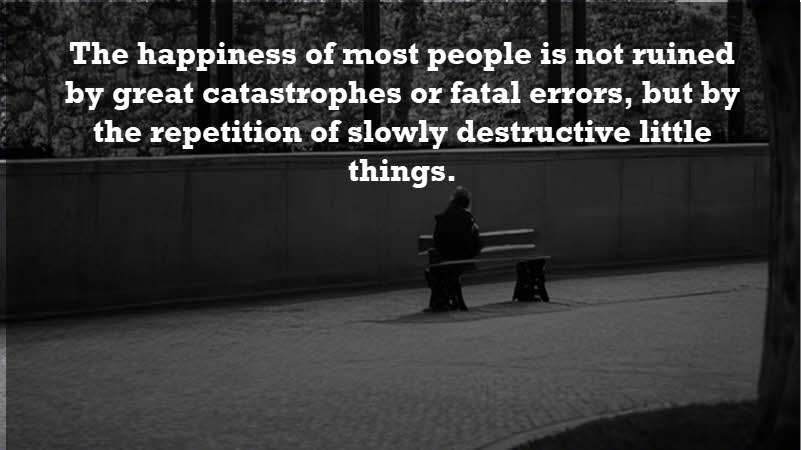I woke up the way I always do, fumbling for my phone before my eyes fully open, squinting at the blue glow. Four notifications, two emails, and the weather forecast (partly cloudy, like my mood). And just like that, I’ve enacted the first in a choreography of unconscious movements that will shape my day.
Did I choose to reach for my phone, or did my phone reach for me?
(I like to pretend I’m in control of my life. I’m mostly not.)
Researchers estimate that more than 40% of our actions are performed without conscious awareness. Let that sink in. Nearly half of what you do today will happen on autopilot. You’re essentially sleepwalking through almost half your waking hours. I’m not sure whether to find that terrifying or comforting.
Then, my coffee ritual. Grinding the beans, heating the water to precisely 204 degrees, and pouring the coffee in concentric circles. I perform it with the muscle memory of a concert pianist playing scales. My hands know what to do while my mind wanders elsewhere (replaying that embarrassing thing I did in 2014 that nobody else remembers).
There’s something Sisyphean about our daily patterns, isn’t there? We roll the same stone up the same hill, day after day. Brush teeth. Make bed. Make coffee. Check email. Repeat until death.
And yet…
I’ve come to believe these habits are the backbone of our lives.
A habit is something you’ve practiced so many times that you’ve essentially programmed yourself. Your brain, being the efficiency-loving organ that it is, has created neural shortcuts. “Why think when you can just do?” it whispers, freeing up processing power for more important tasks. Like wondering if you left the oven on or theorizing about what your cat does all day while you’re at work.
I’ve been paying closer attention to my own habits lately and noticed there’s a hierarchy to our repeated behaviours:
The difference seems to come down to awareness. Habits happen to you. Routines organise you. Rituals centre you.
Phil Stutz, yes, that therapist from the Jonah Hill documentary who looks like he could either fix your psyche or your plumbing, talks about “structural discipline” as the backbone of a meaningful life.
“Your life hinges on structural discipline. It consists of things you do routinely, lik eat, sleep, exercise, etc. The goal is to live in a constant rhythm.” (Phil Stutz)
I used to think that sounded horribly boring. A constant rhythm? What about spontaneity? What about adventure? What about waking up one day and deciding to move to Portugal on a whim?
(I’ve never done this, but I like knowing I could.)
But I’m starting to see his point. These patterns aren’t prison cells. They’re scaffolding. They’re the reliable architecture that allows for improvisation elsewhere. Jazz needs a time signature. Dance needs gravity. Freedom needs form.
Sometimes I catch myself mid-habit, hand already reaching for my phone during a moment of silence in conversation, or automatically opening the refrigerator when I’m not even hungry. It’s like watching yourself in a play you don’t remember rehearsing.
The writer Annie Dillard famously said, “How we spend our days is, of course, how we spend our lives.” No pressure or anything. But when I really sit with this thought, when I let it penetrate beyond the inspirational-quote-on-Instagram level, it’s both terrifying and empowering. If I’m the sum of all these little actions, then changing those actions, even incrementally, changes everything.
I tried an experiment last month. Instead of reaching for my phone first thing in the morning, I kept a notebook by my bed and wrote three pages of whatever came to mind. Stream-of-consciousness word vomit. Sometimes profound, usually not. Morning pages, as Julia Cameron calls them in The Artist’s Way.
The first week was hell. My hand cramped. My thoughts were mundane. I missed my dopamine hit of notifications. But somewhere around day nine, something shifted. I started looking forward to this conversation with myself. My dreams lingered longer. Ideas percolated. The day felt like it belonged to me rather than to my inbox.
One tiny habit pivot, and the entire emotional landscape of my mornings transformed.
(Though let’s be honest, some days I still reach for the phone. I’m working on self-compassion as another habit. It’s a process, people.)
There’s something almost religious about reexamining our habits. The word “ritual” has spiritual origins for a reason. When we elevate a routine to a ritual, we’re essentially saying: this matters. This deserves my full attention. This is sacred.
In our hyper-connected, notification-saturated world, perhaps the most radical act is simply to be present for the small moments that constitute our days. To brush your teeth and just brush your teeth. Not while checking email or planning your day or worrying about that thing you said at the meeting yesterday that sounded smarter in your head.
I’m not there yet. Not even close. But I’m trying.
Maybe that’s all we can do. Try to be a little more intentional, a little more present, a little more deliberate about what we allow to become automatic in our lives. To occasionally pause and ask:
Is this habit serving me, or am I serving it?
Because here’s what I know for sure: we are building our lives one habit, one routine, one ritual at a time. We are the accidental architects of our days. And while 40% of our actions may be on autopilot, the remaining 60% represents an extraordinary canvas for conscious creation.
So tomorrow morning, when I wake up, I have a choice. We all do. And in that choice lies the seed of transformation. Not the dramatic, Instagram-worthy kind. The quiet kind that accumulates, day by day, habit by habit, until one day you look around and realise you’ve built a life that feels like home.
Or at least, that’s what I tell myself as I reach for my journal instead of my phone.
(Most days, anyway.)




Hinterlasse ein Feedback zu diesem Thema